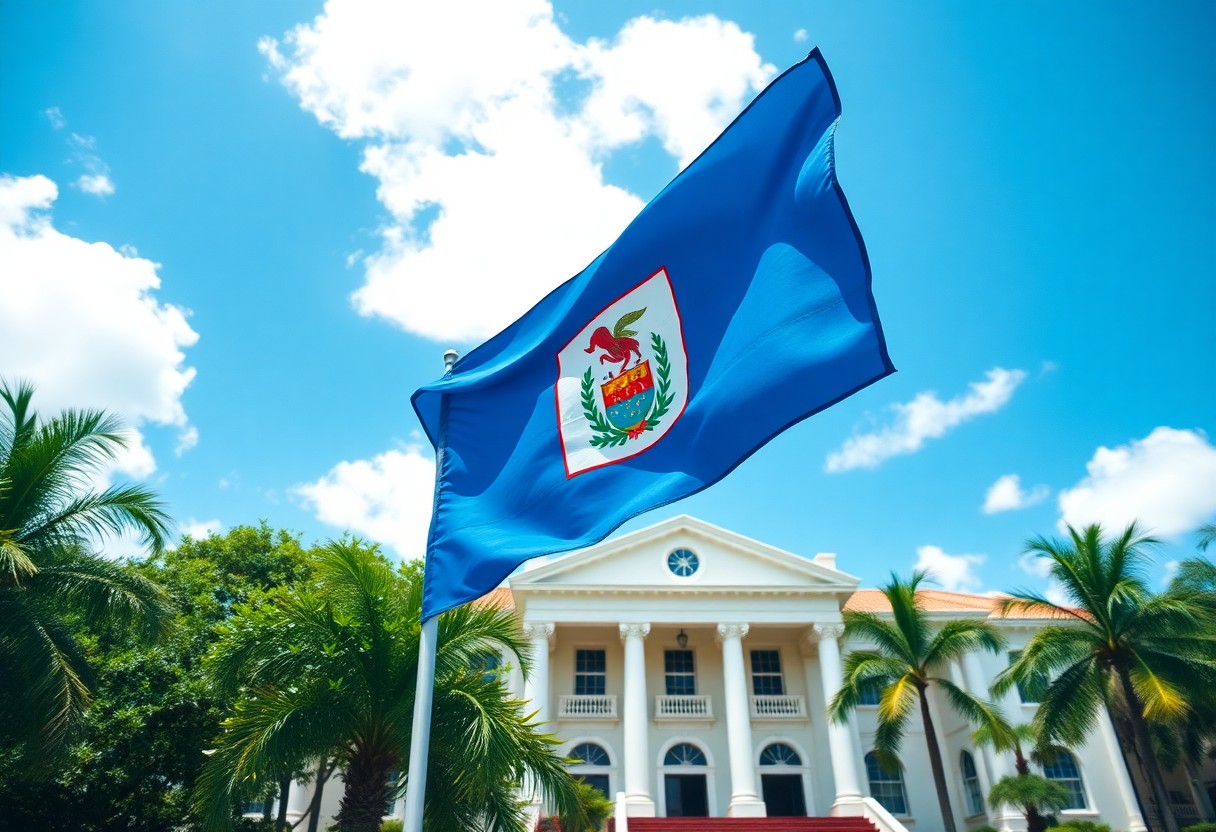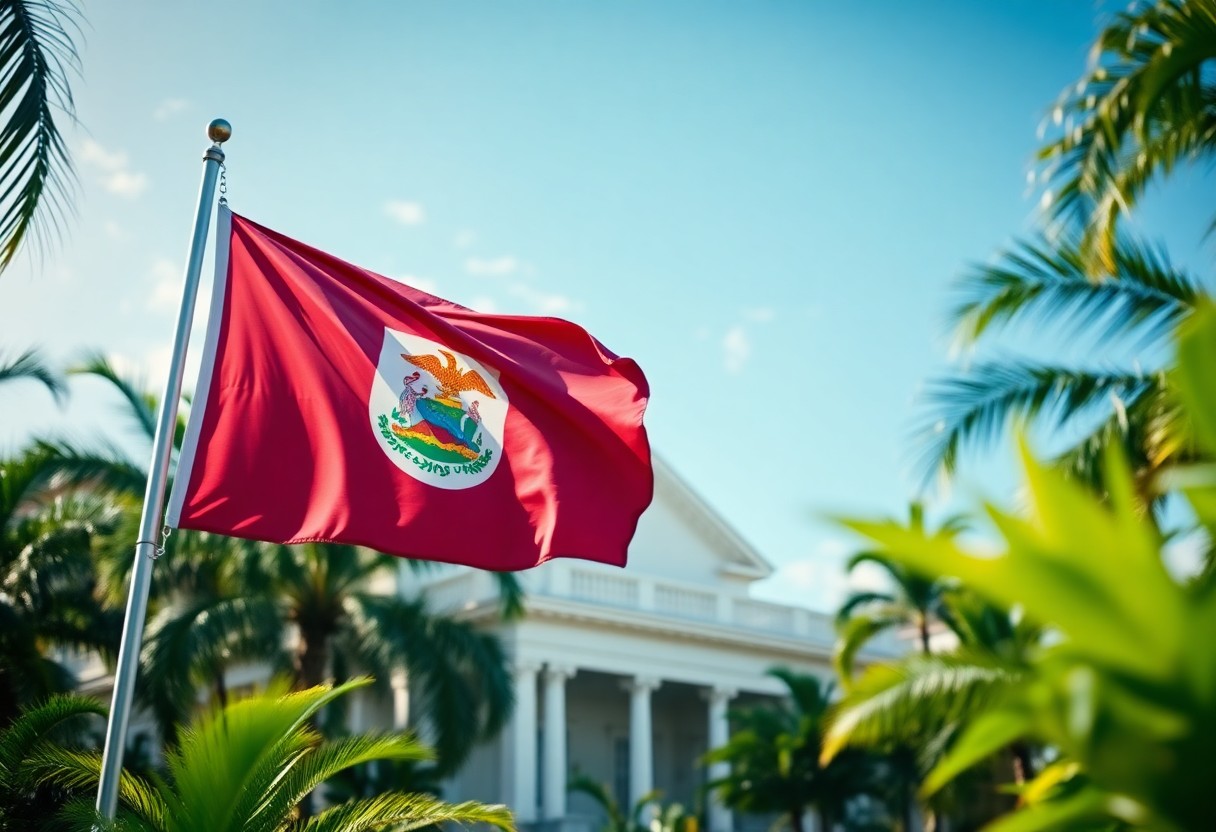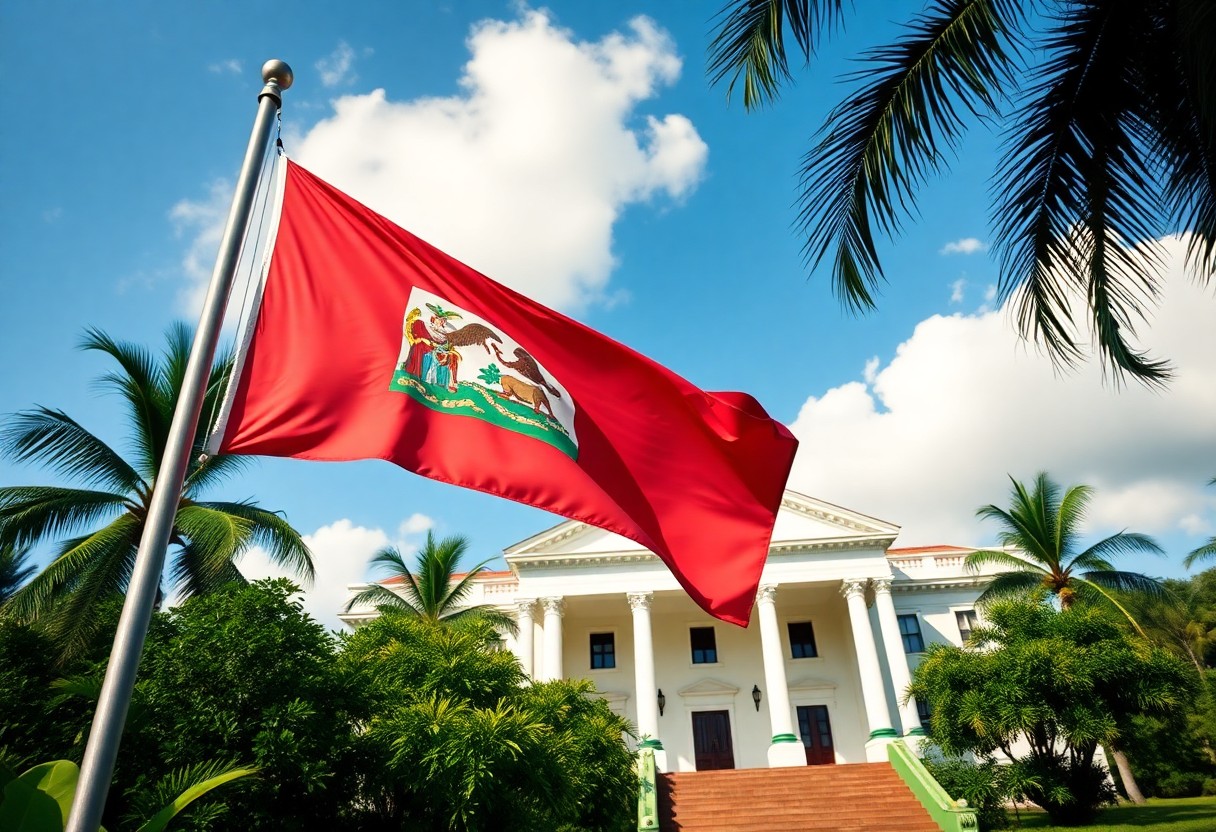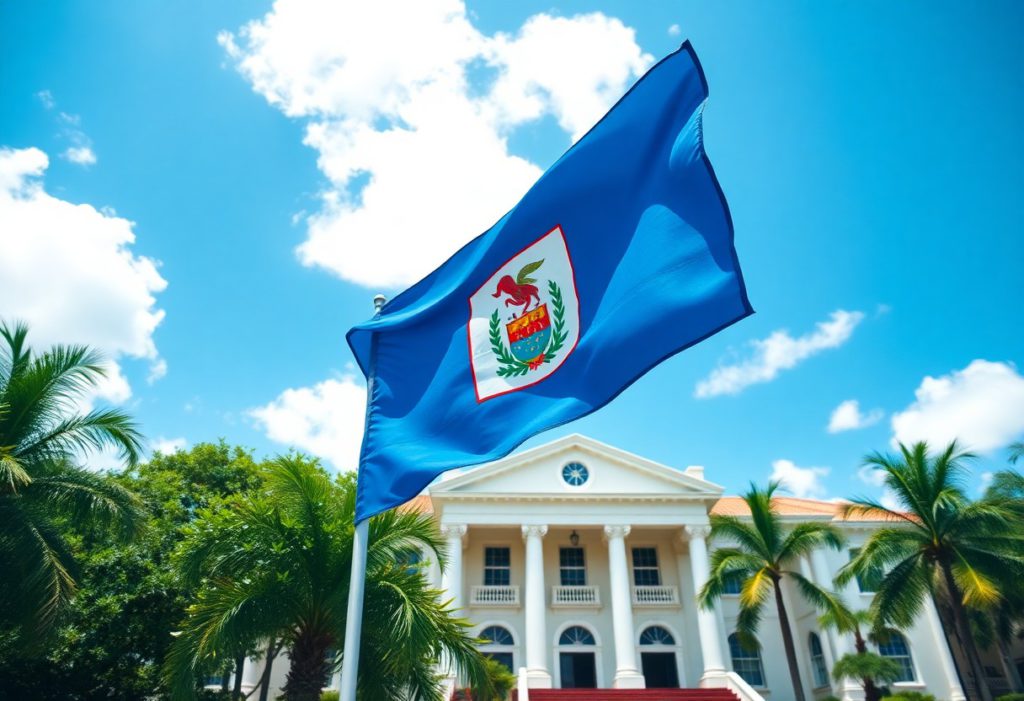Exploring the Historical Evolution of Belize Toward Independence is a vital step in comprehending the profound essence of Belizean identity and its extensive history. This article delves into the key historical milestones that have been instrumental in the nation’s journey to becoming an independent state. It highlights the enduring struggles against colonial rule, significant treaties that were established, and the remarkable achievement of self-governance in 1981. These historical milestones not only underscore the resilience and diligence of the Belizean people but also illuminate the transformative changes that laid the groundwork for a democratic Belize. Join us as we uncover the pivotal events that contribute to the national identity of Belize today.

Exploring the Rich Pre-Colonial Heritage of Belize
Before European colonization, the pre-colonial era in Belize was marked by a vibrant array of indigenous cultures and deep-rooted histories. Numerous indigenous groups flourished in the region, with the Maya civilization standing out as the most prominent. These advanced societies established intricate social hierarchies, innovative agricultural techniques, and extensive trade networks that were remarkable for their time. The cultural heritage from this period is a foundational pillar of Belize’s identity, significantly impacting the historical events that unfolded in the region afterwards, shaping the way the modern Belizean society views itself and its past.
Recognizing the Extraordinary Contributions of Maya Civilizations
A comprehensive examination of pre-colonial Belize must prioritize the remarkable achievements of the Maya civilizations. These ancient societies thrived and made extraordinary progress in diverse fields such as architecture, astronomy, and agriculture. Today, both visitors and residents can admire the breathtaking ruins of Caracol and Lamanai, which stand as enduring testaments to the Maya’s sophisticated lifestyle, showcasing their deep understanding of urban planning and natural sciences. These historical sites not only attract tourism but also serve as invaluable educational resources that reveal the profound depth of Maya culture, enhancing Belize’s appeal as a destination for cultural exploration.
Embracing Belize’s Diverse and Rich Cultural Heritage
At the core of Belize’s identity lies a vibrant and intricate cultural heritage. This rich tapestry is woven from the complex interaction between indigenous, African, and European influences that have collectively shaped contemporary Belizean society. The diversity of this heritage is vividly expressed in the many languages, traditions, and customs that enhance daily life in Belize, creating a unique cultural landscape that is deeply cherished and celebrated by its people.
Moreover, Belize’s cultural heritage plays a crucial role in molding the national identity. The architectural marvels of the Maya, along with their innovative agricultural practices, continue to resonate within today’s society. Additionally, the contributions from African and Creole cultures have significantly enriched Belize’s artistic expressions, musical traditions, and culinary delights. This fascinating blend of cultures fosters a profound sense of belonging and pride among Belizeans, serving as a poignant reminder of the historical challenges that these diverse groups have navigated throughout Belize’s evolving history.
Understanding the Era of British Honduras and Its Impact
The period when Belize was known as British Honduras signifies a critical chapter characterized by British colonial rule. Spanning from the 18th century until the mid-20th century, this era witnessed the emergence of a unique cultural identity deeply influenced by British governance, economic pursuits, and local resistance movements. During this time, substantial transformations occurred within the political and administrative structures, ultimately laying the groundwork for Belize’s relentless pursuit of independence and self-governance.
A Detailed Timeline of British Colonial Governance in Belize
After being officially recognized as a British colony in 1862, British Honduras underwent significant developments, including the implementation of the British legal system and the establishment of vital infrastructure. Throughout the years, the colony faced noteworthy resistance from the local populace, vividly illustrated during events such as the 1934 labor riots, which played a pivotal role in rallying public support for self-governance among the Belizean people and awakening a collective national consciousness.
The Lasting Influence of British Colonial Rule on Belizean Society
Ultimately, the effects of British colonial governance have profoundly shaped the societal and political frameworks of Belize. The introduction of the English language, alongside legal systems and educational institutions, played a crucial role in modernizing the nation. While this relationship brought specific challenges, it also established foundational elements for the democratic governance that Belize enjoys today.
Moreover, the repercussions of British colonial influence are evident in various aspects of contemporary Belizean society. The English language remains the official means of communication, facilitating interactions both locally and internationally. Additionally, the legal and governance structures instituted during colonial times laid the groundwork for Belize’s current legal system. However, it is important to acknowledge that this influence was also accompanied by the exploitation of resources and cultural imposition, which have had lasting impacts on Belizean demographics and national identity. Understanding these intricate dynamics is essential for grasping Belize’s complex journey toward independence and self-determination.

Charting the Defining Path to Belize’s Independence
No discussion about Belize’s journey toward independence can be complete without acknowledging the significant events that paved the way for this historic transformation. The road to liberation involved responding to colonial pressures, fostering a growing sense of nationalism, and advocating for increased self-determination among the Belizean populace. The mid-20th century marked a surge in political activism, which tirelessly laid the groundwork for Belize’s eventual emancipation from British colonial rule.
Highlighting the Key Leaders in Belize’s Independence Movement
Identifying the key historical milestones along Belize’s path to independence includes recognizing influential figures such as George Cadle Price. By acknowledging their leadership and vision, one can appreciate how these individuals mobilized public support for self-governance, significantly shaping the future and identity of the nation and inspiring generations to come.
Engaging in Negotiations for Enhanced Autonomy
During the pivotal discussions regarding self-governance, representatives of the Belizean populace took center stage, proposing transformative strategies that would alter the course of history.
With a proactive and determined approach, Belizean leaders actively engaged in discussions with British representatives regarding self-governance. These negotiations proved to be a turning point, as Belize sought to assert its autonomy in managing its own affairs. The formation of political parties and organized movements played a crucial role in articulating the demands for change from the Belizean populace. As tensions escalated, the negotiations grew increasingly intense, reflecting the urgency felt by Belizeans for autonomy. This critical period culminated in several constitutional amendments, setting the stage for Belize’s eventual independence from colonial oversight and governance.
Significant Milestones on the Journey to Sovereignty
A multitude of significant milestones marked Belize’s arduous journey to independence. From initial legislative initiatives to pivotal events, each moment played a crucial role in the quest for self-determination. By examining these milestones, you will gain a deeper appreciation for their profound impact on the nation’s identity and the ongoing struggle for sovereignty in a post-colonial context.
Key Legislative Developments Leading to Self-Governance in Belize
One of the key early legislative advancements was the introduction of the Internal Security Act in 1961. This act established a framework for self-governance, allowing for a limited degree of autonomy in local governance matters. This pivotal legislation marked a watershed moment, encouraging Belizeans to actively engage in political processes and advocate for further reforms that would reshape their political landscape and enhance civic participation.
Defining Events from 1964 to 1981 That Shaped Belize’s Political Landscape
In the years leading to Belize’s independence, significant events from 1964 to 1981 played a crucial role in shaping the nation’s political landscape. These moments included the emergence of influential political leaders and nationalist movements, which laid the groundwork for achieving self-governance.
Throughout this transformative period, numerous key events unfolded that contributed to Belize’s independence. The 1964 Elections heralded a new era of political engagement by extending voting rights to a broader segment of the Belizean population. The 1969 Belize-Guatemala tension further intensified calls for autonomy and unity among citizens. The 1973 Constitution established a more robust governance framework, granting additional rights and liberties to the populace. Ultimately, these developments, alongside the declaration of independence in 1981, defined Belize’s trajectory toward establishing a distinct national identity and self-rule.

Challenges and Opportunities in Post-Independence Belize
In the years following its independence in 1981, Belize encountered a series of challenges and opportunities in its quest to craft a cohesive national identity and establish effective governance. The nation undertook significant efforts to create a stable political framework while promoting economic growth and addressing pressing social issues. Initiatives were directed toward enhancing infrastructure, education, and healthcare systems, all aimed at improving the quality of life for every Belizean in this young and evolving democracy.
Assessing the Political Framework of Belize
The political framework is fundamental in determining the governance of Belize. The country operates as a parliamentary democracy with a clear separation of powers among the executive, legislative, and judicial branches. The Prime Minister leads the government, while the legislative body consists of the House of Representatives and the Senate. This political system encourages regular elections and the representation of diverse political perspectives, promoting active civic engagement among the populace and ensuring that citizens have a voice in their governance.
The Importance of Commonwealth Membership for Belize’s Development
Upon gaining independence, Belize proudly became a member of the Commonwealth of Nations, which has been instrumental in fostering international relationships and support. This membership provides Belize with access to a network of countries that share similar democratic values, enabling participation in collaborative initiatives in sectors such as education, trade, and sustainable development.
A significant benefit of your Commonwealth membership is the opportunity to engage in discussions about regional issues that impact Belize. Participation in this organization enhances Belize’s global presence while also strengthening connections with other former British colonies. Additionally, you will discover that Commonwealth nations often provide developmental assistance, which can be vital in addressing local challenges. However, this membership also requires a commitment to uphold democratic principles and human rights, ensuring that Belize continues to progress as a respected member of the global community, dedicated to fostering peace and cooperation.
Addressing the Modern Challenges Confronting Belize
It is crucial to understand that Belize currently faces a multitude of contemporary challenges that significantly impact its stability and growth. These challenges encompass economic issues, social concerns, governance, and environmental factors that collectively shape the nation’s future trajectory. Addressing these pressing issues is vital for sustaining progress, as they directly affect the daily lives of Belizeans and the overall development of the country.
Evaluating Economic Challenges in Contemporary Belize
Modern economic challenges in Belize include high unemployment rates and an over-reliance on tourism as the primary driver of the economy. These factors contribute to economic instability and directly affect the livelihoods of local businesses. Fluctuations in global tourism trends can have profound impacts on Belize’s economy, placing additional pressure on government resources and public services, thus highlighting the urgent need for economic diversification and resilience strategies.
Addressing Social Issues Within Belizean Society
In Belize, social issues such as poverty and inequality continue to pose significant challenges. Factors such as limited access to education and healthcare services contribute to disparities among various communities, adversely affecting the overall quality of life for Belizeans and hindering social mobility.
Moreover, it is important to recognize that social challenges in Belize are intricately intertwined with prevailing economic conditions. The high rates of poverty directly impact access to essential services, and inequalities in education can hinder future opportunities for many individuals. Nonetheless, community initiatives and government programs are actively addressing these concerns, fostering a sense of hope and resilience among the population. By strengthening social ties and investing in education and healthcare, Belize can progress towards achieving a more equitable society for all its residents, ensuring that everyone has a fair chance at success.
Reflecting on Belize’s Historic Path to Independence
Reflecting on Belize’s journey to independence allows you to appreciate the significance of key historical milestones that shaped the nation. You can witness the ramifications of the 1964 and 1973 constitutional changes that laid the groundwork for self-governance. You also recognize the importance of the 1975 Treaty of Friendship with Guatemala in addressing long-standing territorial disputes. Ultimately, the official independence achieved on September 21, 1981, marked a transformative chapter in Belize’s history, allowing every Belizean to celebrate national identity and sovereignty. Each of these milestones played a pivotal role in molding Belize into the nation it is today, reinforcing the collective narrative of resilience and determination.
Frequently Asked Questions About Belize’s Journey to Independence
What Major Historical Events Contributed to Belize’s Independence?
Belize’s journey to independence was punctuated by a series of significant events. The independence movement gained momentum in the 1940s, culminating in 1981 when Belize officially liberated itself from British colonial rule. Key milestones during this period included the establishment of a constitutional government in 1964 and the organization of self-governing elections that empowered the Belizean populace.
Who Were the Influential Figures in Belize’s Independence Movement?
A number of influential individuals played pivotal roles in the independence movement. George Price, the leader of the People’s United Party, was central to advocating for Belize’s independence. Other notable figures included Philip Goldson and various members of political organizations that actively campaigned for self-determination, each contributing to the collective goal of achieving freedom.
How Did the British Government Respond to Belize’s Independence Movement?
The British government initially expressed resistance to independence but ultimately acknowledged Belize’s readiness for self-rule. This shift occurred as they observed the growing political awareness and activism among the Belizeans. British officials collaborated with local leaders to facilitate a smooth transition toward independence, recognizing the inevitability of Belize’s aspirations for self-governance.
The Article How Belize Gained Independence: Key Historical Milestones appeared first on Belize Travel Guide
The Article Belize Independence: Key Historical Milestones Explained Was Found On https://limitsofstrategy.com
References:
Belize Independence: Essential Historical Milestones Uncovered


